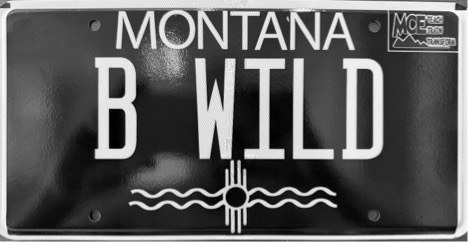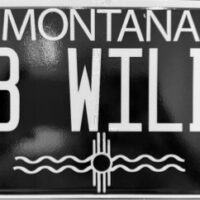






























































The abstract idea of wilderness began long before the passage of the Wilderness Act in 1964.
As far back as the Babylonian Empire and Chinese Empire laws were written to protect sacred, unrestricted places in nature not yet deprived of freedom of action or natural expression.
The aim of Congress in 1964 was to preserve some of our country’s last remaining wild landscapes. Today it serves as a legal and conceptual foundation – “the gold standard” – for contemporary notions of preserving large untrammeled landscapes and codifying protection for fully functioning terrestrial and aquatic ecosystems.
Once located, named (declared as a noun), and mapped, sovereign land becomes an object, a possession, a thing, property. Herein lies the trap. Once perceived as an object the land’s liberating sovereignty begins to fall into an all-too-common dogmatic straitjacket which features rent-seeking and utilitarian reductionism.
The verb form of “wilderness” is “wilder,” found in older texts, meaning to lead astray, bewilder, or wander aimlessly. I can’t count the number of times have I heard government attorneys say: Grizzly bears don’t occupy these lands in the project area (proposed clearcut units), your honor, they’re just wandering through (as if wandering aimlessly).
Any 21st Century concept of I wilder, you wilder, he/she/it wilders are virtually unknown to most.
Ralph Waldo Emerson was keenly aware of how societal influences and personal biases tend to limit imagination and human perception. In the mid-19th Century, Emerson (paraphrasing?) said: People in their wildest dreams can only see what we have been conditioned to see.
The biggest obstacle to realizing the intrinsic freedom already existing within us, which also permeates throughout the ecosystems upon which all lifeforms depend, is the fear-based mental state of mind that limits human imagination. We must make ourselves seers again and begin to realize that we dream all the time, not just in the darkness of night.
Do not be satisfied with the stories that come before you.
Unfold your own myth.– Hafez
The relentless attacks against wilderness and the Wilderness Act of 1964 succeed because hardly anyone can see the impermanence of our fluid universe that is continuously in flux. Our attachment to the delusion of an objectively existing (concrete) world must be overcome to experience the interconnectedness of all of life and cognitively develop our capability to initiate a greater compassion for all beings. The Universe is trying to reveal to us its dreamlike, synchronistic nature. We instinctively know this through our imaginative/creative/spiritual being.
If we expand our definition of wilder, we can wilder ourselves and our awareness of wild land (wild land can, of course, wilder all by itself, with or without the presence of man), releasing us from the old pejorative context of perceived separation, reactionary emotions, irrational fear, and bewilderment. We have the potential to instinctively see, feel and be our way to a creative new perception of meaning: What it is to simply be wild and free?
Be is an irregular verb, a state of being. In its present tense: (I) am, (he, she, it) is (you, we, they) are. As soon as we free our mind of its battle between thought and awareness, wildering can commence.
This awareness of being, or becoming, wild, inseparable from all of nature, frees the land and man from all the so-called “economic” and “supply and demand” conflicts and the perceived duality of mythical, spiritual aspiration and the destruction of these highly romanticized landscapes. There is no real conflict or problem as imagined and advanced by modern anti-wilderness activists. Sadly, they see their own reflection, a deeply engrained perception, which only sees objects/commodities/things meant to become marketable merchandise.
American wilderness has always been perceived as a mythical place where romanticized beliefs in self-righteousness and self-reliance took shape. The duality of wilderness as a place of unknown danger and fear, and of promise and good fortune became a foundational cultural narrative that has been replayed for millennia. Today, many still believe in the Chosen People-Promised Land cognitive model of the Old Testament to be a divinely ordained mission for United States Empire to expand its dominion and violent exploitation to the far reaches of Earth.
In the name of progress and accumulation of wealth and power, the widespread destruction of the ecosystems, wildlife and native peoples continues unabated. Denial blinds us to the devastation even as it becomes increasingly difficult, if not impossible, to ignore.
Empire’s assault on dream, imagination and creativity makes possible all the other devastations threating our world today.
It will take a great leap toward a greater passional consistency by creative individuals to reverse the trend toward global settler-colonialism and privatization of the remnants of our fragmented wild landscapes.
Therefore, it is our solemn duty to recapture our sensory lives, our spiritual lives and our programmed minds from neoliberalism’s freakish controls designed to dilute, discourage, and eliminate all awareness and critical meaning.
Just say no to the unprecedented market-and-property schemes that have dominated our servitude. We must now DREAM BIG and seek ways and means to exorcise (rescue) man from possession and unconsciousness. Imagine wildering as a state of being, as a possible means to that end. Look inward, be the light in a time of darkness. Be yourself, and let the land be!
The post How to “Wilder” in a Virtual, Financialized World appeared first on CounterPunch.org.
This post was originally published on CounterPunch.org.